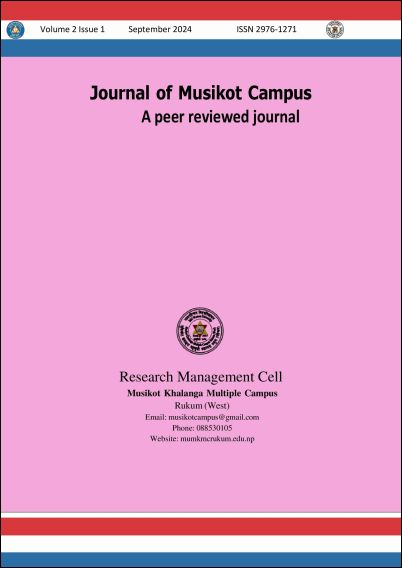Themes of Jitauri Katha Sangraha
DOI:
https://doi.org/10.3126/jmc.v2i1.70841Keywords:
Outlook, essence, truth, factuality, realism, ideologyAbstract
The study focusses on the core themes of the stories from Jitauri Katha Sangrah by storyteller Purna Oli are discussed. The collection includes a total of thirteen stories, and six of them—Anshiar, Khajakharch, Mache Ankho, An Incompetent Warrior, Jitauri, and Keihaina—have been explained in detail. This study identifies the issues highlighted in these stories.
The objective of this study is to analyze the stories based on their core themes. A descriptive method was used in this qualitative study, where the summaries of the stories were reviewed, and conclusions were drawn after analyzing their essence. The stories reveal several problems in Nepalese society. These include issues of citizenship, the presence of human traffickers, the wrongful persecution of noble people, corruption, and the authoritarian behavior of men towards women due to conservative tradition. Additionally, qualified peoples in society are becoming ineffective, broker capitalism is leading to widespread incompetence, and Nepal's political system and leadership are often deceiving the people, public opinion, and constitutionalism.
Oli’s stories also highlight the weakening of Nepal's bureaucracy, the presence of fake behaviours in society, the suffering and warm love found in Nepali society, and the idea that abandoning revolution and hard work leads to loss in life. Furthermore, the stories touch on the growing influence of mafia and brokerage in the education sector, the unjust dismissal of honest employees based on suspicion, and the challenges faced by Nepali people in various aspects of life, including murder for money. Through these stories, Oli powerfully presents the essence of human settlements falling into the clutches of these problems.




